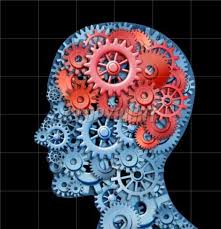NewDay Counseling
If you have a problem with alcohol or some other drug, call a NewDay counselor at 912.201.3605 * 401 Mall Blvd, Ste 101 D, Savannah, Ga * Free Phone Consultations
Opiate Addiction – A Serious Problem

Opiate addiction has been in the news now for quite a while. Depending on who’s reporting the news, the exposure can be helpful or not so helpful. To the extent that reporting is aimed entirely at doctors over-prescribing opioids, it’s not so helpful. The demand for opioids would be great even if all doctors prescribed responsibly. Drugs under the opioid umbrella are powerful, addictive drugs that have a profound effect on the brain. Long term addiction rewires the brain, creating a compulsion to use the drug in spite of negative consequences.
There’s confusion over physical dependence and addiction. Anyone who uses powerful narcotics for long-term pain treatment can become physically dependent, but, once they find out they’re dependent, most are concerned and want to make changes. Addiction creates a compulsion to use that’s irrational and persistent. The addict usually denies they have a problem, and even when the drug’s removed from their body, if they haven’t received some kind of treatment, they crave the drug and usually go back to using it again.
It’s important to understand addiction, if you’re dealing with the problem – either your own addiction, or a son or daughter, a wife or husband, an employee or co-worker, etc. With parents, it’s always particularly difficult to confront children when there are suspicions – it’s hard to believe a son or daughter 14, 15, 16 years old could have a serious, life-threatening problem with a powerful opioid drug. You never want to over-react, but you don’t want to deny a problem that will only grow worse.
It’s always better, whether in a family, a school or a workplace, to talk openly about addiction before there’s a crisis, so that everyone’s comfortable talking about drug use, and, yes, alcohol is a drug. It’s amazingly hard for most people to talk openly and honestly about addiction even if there’s no problem. Maybe it’s because addiction is somewhat of a mystery to people who’ve never been addicted to a drug – it is scary. Many people don’t understand, and they deal with the subject by denying it exists, saying things like “all they have to do is use will power and stop.” It’s just an uncomfortable topic. This has to change if society’s going to deal with problems like opioid addiction ( or any other addiction for that matter).
Sometimes it’s easier to have a professional help guide conversations. Employee Assistance Professionals or Human Resource counselors can help companies discuss the problem openly, while addiction counselors can help families sort through the difficulties when there appears to be a problem in the family, or just to become educated about what can happen. With teenagers, whose brains aren’t fully developed, problems with drugs can cause a lot of damage that’s hard to overcome. Early education and prevention tactics are smart and useful for families, relationships of all kinds, schools and the workplace. The more we know about addiction, the better solutions we can find.
Recent Comments